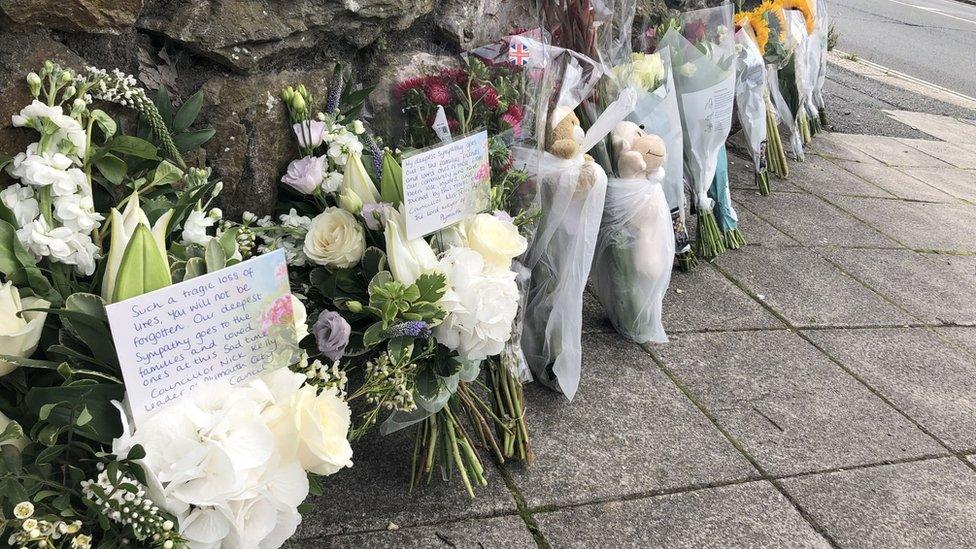Plymouth shooting: Gun laws could be reformed
- Published
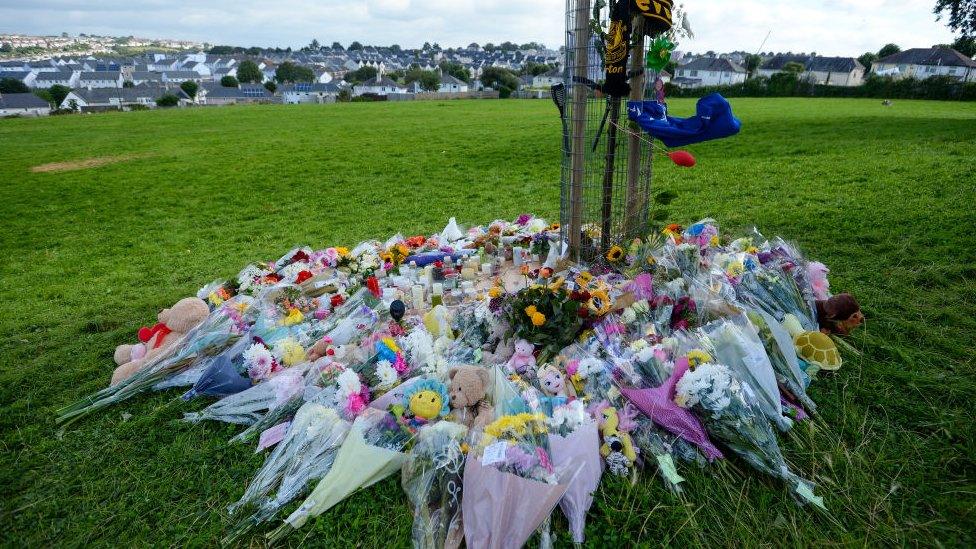
Floral tributes were laid following the shootings in Plymouth in August 2021
Firearms laws could be reformed in the wake of shootings in Plymouth and the Isle of Skye, the government has said.
Home Office minister Chris Philp committed to make "any further changes needed to protect the public".
Mr Philp made a statement to the House of Commons following the conclusion of the inquest into the victims of the Plymouth shootings.
The inquest jury found "a serious failure at a national level" to implement previous recommended reforms.
Jake Davison killed his mother Maxine, 51, Sophie Martyn, three, her father Lee, 43, Stephen Washington, 59, and Kate Shepherd, 66, in the Keyham area of Plymouth in August 2021, before he turned the gun on himself.
A series of shootings took place in Skye in August 2022 in which one man died.
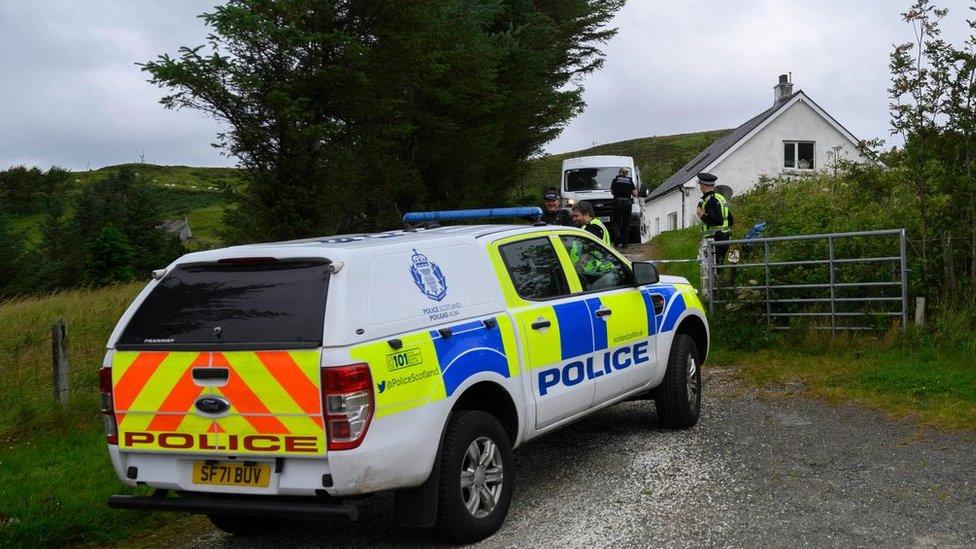
Police were called to a series of incidents around Skye in August
The families of Keyham gunman Davison's victims have demanded an overhaul of the 50-year-old Firearms Act after accusing police of granting him "a licence to kill".
Mr Philp told MPs: "We must ensure our controls on firearms are as robust as possible and learn the lessons of the tragic deaths in Keyham, and also in Scotland, and we therefore await the coroner's anticipated report into the prevention of future deaths with keen interest."
Labour's Luke Pollard, the MP for Plymouth Sutton and Devonport, who has been campaigning for firearms reform, asked Mr Philp to meet with the families of the victims.
Allow X content?
This article contains content provided by X. We ask for your permission before anything is loaded, as they may be using cookies and other technologies. You may want to read X’s cookie policy, external and privacy policy, external before accepting. To view this content choose ‘accept and continue’.
Mr Philp agreed and said he wanted to "listen to their concerns directly and make sure their voice is heard in government".
Mr Pollard also called for "comprehensive changes to our gun laws to make sure that no other community anywhere in the country will have to go through what we have in Plymouth".
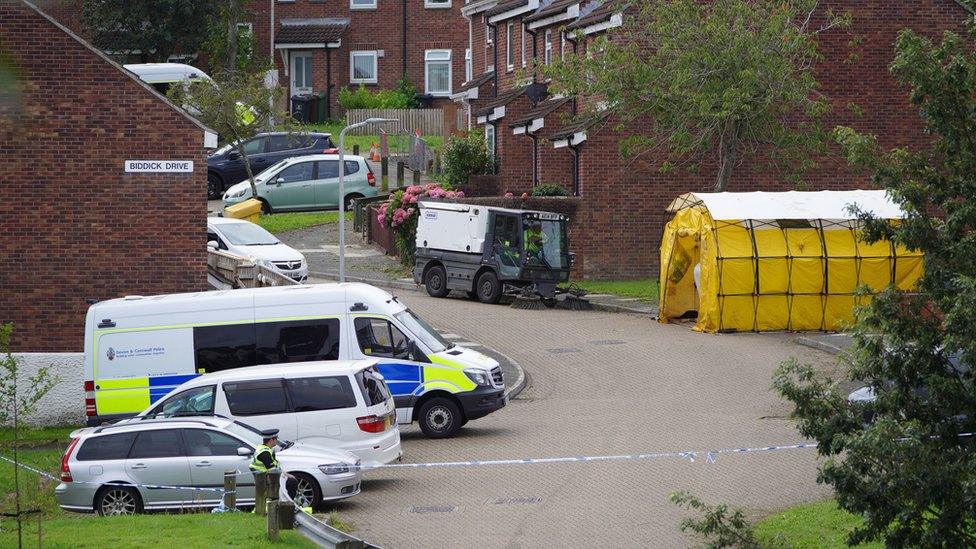
Jake Davison killed five people before taking his own life in the Keyham area of Plymouth
Jurors at the Keyham inquest were critical of the failings within the Devon and Cornwall Police firearms licensing unit, which handed the apprentice crane operator back his shotgun five weeks before the killings.
Mr Philp said Devon and Cornwall Police could face a further review of its firearms licensing arrangements.
He said the force had assured the Independent Office for Police Conduct (IOPC) that changes had been made following the watchdog's recent recommendations.
Mr Philp added: "Depending on what the coroner might recommend shortly, I am currently minded to ask the inspectorate to go and look specifically at the arrangements that Devon and Cornwall have in place for firearms licensing to confirm their suitability."
On Tuesday, at the conclusion of a separate inquest into Davison's death, the barrister representing Davison's remaining family, Nick Stanage, called on the coroner to "do all you can as soon as you can to make recommendations for actions, not words, that might begin at long last to protect the public from future atrocities".
'Change the onus'
The coroner for Plymouth, Ian Arrow, told the jury he would be writing a prevention of future deaths report on a number of issues revealed during the inquests including training for firearms licencing staff, the differences on licencing shotguns and firearms, fees for licencing and mandatory markers on health records.
He said: "It's imperative that we do not lose the momentum of what this series of inquests have revealed.
"There have been lessons learned in previous years but they did not seem to have been properly addressed."
Johnny Mercer, Conservative MP for Plymouth Moor View, said on Twitter, external the police were "not supported by strong enough legislation".
He said he would "be writing to the home secretary calling for an overhaul of the 1968 Firearms Act to change the onus on proving need for weapons like this, from permissive law to the gun-owner demonstrating why they need it".
Laws' 'inconsistent application'
The British Association for Shooting and Conservation (BASC), the UK's largest shooting organisation, has opposed calls for changes to firearms licensing.
Christopher Graffius, BASC's executive director of communications and public affairs, said, in the Keyham case, the fault lay "not with the existing laws but with their inconsistent application by Devon and Cornwall Police".
The BASC said it had written to the coroner regarding what it thought could help prevent future shootings and said it would discuss these recommendations with the government.
Mr Graffius said it had previously asked for a national firearms licensing regulator to improve standards in training.
However, the BASC opposed the recommendation made by the Independent Office for Police Conduct (IOPC) to remove any distinction between what is required for firearms and shotgun certificates.
Mr Graffius said removing the distinction would "impose an unnecessary burden that would do nothing to improve public safety".

Follow BBC News South West on Twitter, external, Facebook, external and Instagram, external. Send your story ideas to spotlight@bbc.co.uk, external.
Related topics
- Published20 February 2023
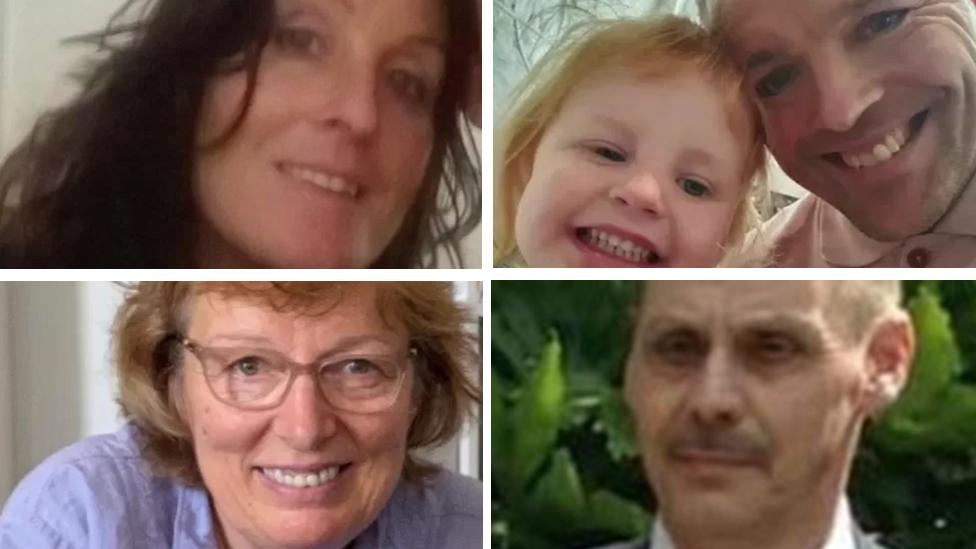
- Published20 February 2023
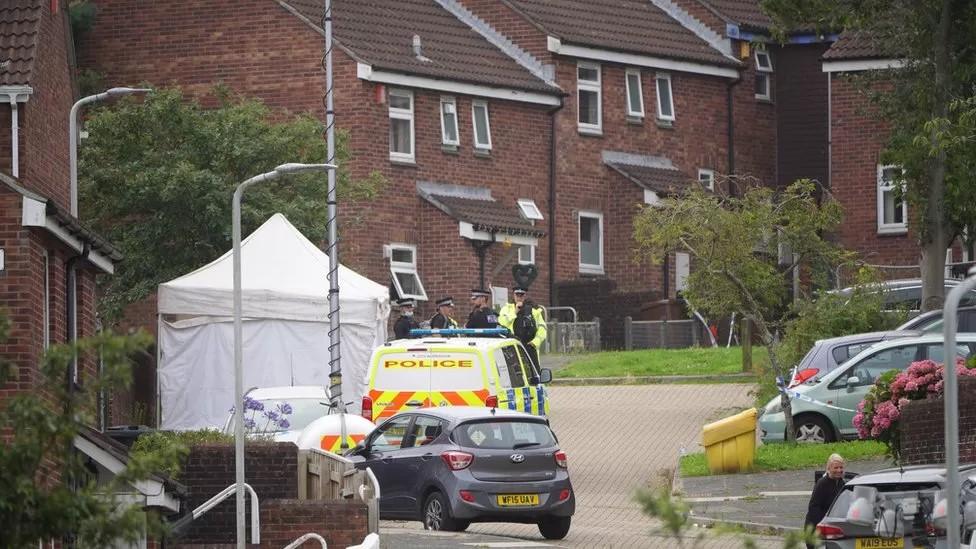
- Published20 February 2023
